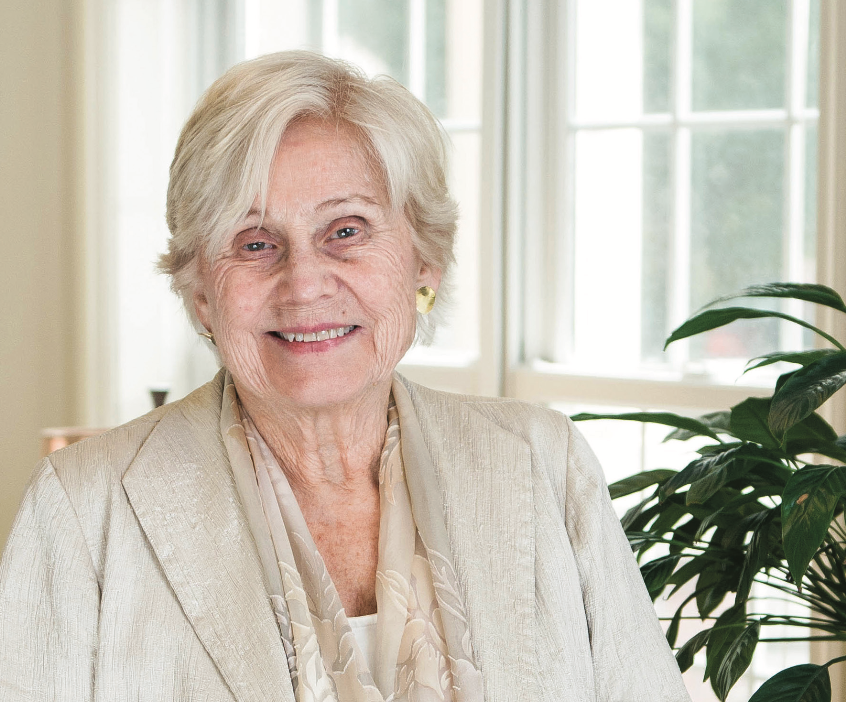I am dedicating this posting to all my Kasimanwa (town mates) all over the World in the town where I spent my childhood and teenager years in the Philippines. The town of Barotac Viejo, Iloilo. Today, the Feast of St Peter and Paul, is the Feast Day of Barotac Viejo.
This posting is inspired when one of my younger relatives asked me recently if I really happy and what it is actually like to be over 90 years old. I did some search and I am reposting the following article by Kathryn Etsy as follows. I can identify with most of the issues written in this article.
If you follow my blogs you probably know I turned 90 last December 20. 2024.
The link of the article is at the bottom of the page. This is a must read if your are 90 or over.
"What is it like being really old, like 90 or older? Are you thinking nonagenarians are sick, unhappy, out of it, frail, forgetful, slow, stuck in their ways, grumpy, and incompetent? Do people’s derogatory names like biddies, old farts, geezers, and old bats come to mind? No one ever says, “I can’t wait to be 90.” But then, of course, being really old is always better than the alternative.
What You Believe About Being Really Old is Mostly Wrong.
Now that I am 88, and 90 is on my horizon, I am wondering what my own future will bring and how I will fare. I interviewed over 130 people who were in their eighties for my book, EightySomethings: A Practical Guide to Letting Go, Aging Well, and Finding Unexpected Happiness. My major finding was how happy people in their 80s are, and how unexpected their happiness is. I often talk about the amazing research of Laura Carstensen at Stanford University and many others who have found that people in their 60s are happier than people in their 50s, people in their 70s are happier than people in their 60s, and people in their 80s are happier than people in their 70s.
Will the happiness I have written so much about continue for me as I age? Living at a retirement community over these last 10 years, I have observed dozens of people in their 90s. But I have never asked them point blank how happy they were.
So this last week I interviewed five people who are 93 or older — three women and two men to get a sense of what the future might hold from this small sample. All of them live in the independent living section of a retirement community near Boston and all are financially secure. That makes them somewhat unusual as about 75% of nonagenarians live in households and typically rely on Social Security for about half of their income, according to a 2019 U.S. Census Bureau study.
Four of my interviewees no longer drive. One is in a wheelchair and has full-time care. All their spouses have died. Four of them have significant hearing loss and use hearing aids and one of them has vision issues. All of them are articulate and answered my questions with ease.
Disability Issues
Disability is more common for nonagenarians, according to the U.S. Census Bureau study. Overall, the proportion of people aged 90 to 94 having disabilities is more than 13 percentage points higher than that of 85- to 89-year-olds. The most common types of disabilities reported to the Census Bureau included difficulty doing errands alone and performing general mobility-related activities like walking or climbing stairs.
When I asked them about what brings them joy and pleasure nowadays, four of the five said being with family was their greatest pleasure. It turns out family at 90 can mean our blood relatives or chosen family, like a godchild or a step-nephew, and their visits bring great joy.
They also said that being with family was what gives purpose and meaning to their life now. Two of them reported they get together each week for a Zoom meeting with their children and some of their grandchildren. Four of those I spoke with have members of their families who frequently visit. The fifth person said her family doesn’t come that often, but she has many friends. One person said her purpose was “spreading love around.” Another said meaning came from a belief in Jesus and in eternal life.
All five are active. But their world has grown smaller. They paint, take walks, take courses, are in book clubs, go to concerts, attend exercise classes, have dinner with friends and acquaintances, sing in a singing group, and play cards. One of the five recently flew across the country to visit an even older sibling. Travel is no longer that easy for others. They do support causes they believe in financially. They are far less engaged in community organizations and churches and they avoid positions of responsibility.
Asked about their biggest challenges, four of them said that living with the loss of a beloved spouse or the loss of a partner is the hardest part of their current life. They talked about how difficult it is to be on their own. The loss of friends is also a challenge. Not being able to drive anymore was another big challenge for the four who can’t drive any longer.
Lucky to Be Alive
All of them talked about health issues but, interestingly, none of them said that health is their biggest challenge. And they all expressed feeling lucky just to be alive. They all said that they have fewer challenges than most people their age. Surprisingly, then they mentioned having three or four very serious conditions like macular degeneration, arthritis in their back and feet, heart problems, neuropathy, and cancer.
As a group, they are very concerned about the uncertain future of our country and the world. One put it this way, “The world is coming apart at the seams.” But they are content to have stepped off center stage. It is now up to the younger generations to fix the world’s problems. None of those I spoke with expressed any worry about death or dying. Only one of them mentioned it, saying, “I don’t think about dying.”
I asked each of the five, “How happy have you been in general during the last year? Using a scale of 1 to 10 with 1 being ‘not at all happy,’ 6 being ‘sometimes happy,’ 8 being ‘usually happy’ and 10 ‘always happy,’ how would you rate your happiness?” Four out of 5 said they were 8, ‘usually happy’ and one person responded 10, ‘always happy.’
Concluding Thoughts
To be in your nineties is different and more challenging than being in your eighties. The loss of so many of their beloved spouses, partners, family members, and friends makes the nineties more difficult than in earlier decades. And, people in their nineties, almost without exception, live with several major health issues as well. But as at all other ages, there are huge differences among those in the same age group". By Kathryn Etsy
https://community.thriveglobal.com/what-its-actually-like-to-be-over-90/
Meanwhile, Did you know that....
There are nearly 2 million nonagenarians – people in their 90s – in the U.S., that number is projected to increase to 10 million to 12 million by the middle of the century, raising concerns that the current healthcare system may not be able to accommodate this population. What percent of Americans live to be 90? In the US population 30% of females live into their 90's, but only over 18% of males.
Lastly, What is artificial intelligence?( From the Washington Post)
eturn to menu Artificial intelligence is an umbrella term for a vast array of technology. There is no single definition, and even researchers disagree. Generally, AI is a field of computer science that focuses on creating and training machines to perform intelligent tasks, “something that, if a person was doing it, we would call it intelligence,” said Larry Birnbaum, a professor of computer science at Northwestern University.
For decades, AI has largely been used for analysis, allowing people to spot patterns and make predictions by assessing huge sets of data.
But advancements in the field have led to a boom in generative AI, a form of artificial intelligence that can make things. The technology can create words, sounds, images and video, sometimes at a level of sophistication that mimics human creativity. It backs chatbots like ChatGPT and image generators like DALL-E.
Although this technology can’t “think” like humans do, it can sometimes create work of a similar quality. AI-powered image generators have made photos that tricked art judges into thinking they were human-made, and voice generating software has preserved voices of people suffering from degenerative diseases such as ALS.
Chatbots backed by generative AI have dazzled users by carrying on eerily lifelike conversations — an early dream of the field as envisioned by Alan Turing.
In 1950, he developed the “Turing test,” which judged the success of an AI machine by how well it could fool users into believing it was human. Turing never gave much credence to the idea that a computer could really “think” — he called that question “too meaningless to deserve discussion.”





















